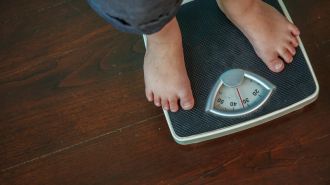
- Our studies
- Our research
- Publications and resources
- Data access and training
- About
- News
- Events
- Get in touch
- Join our mailing list

Welcome to our news and blogs section. Here you’ll find the latest developments and insights from across our longitudinal studies.
UCL and the University of Bristol are to lead the Population Research UK (PRUK) co-ordination hub, part of an existing strategic investment from the UKRI Infrastructure Fund.
As a child, what did you want to be when you grew up? Well, CLS researcher, Dr Sam Parsons was asked to think back to her childhood aspirations when she appeared on a children’s social science radio programme this weekend (2 November).

Adolescents who use social media for at least five hours a day are more likely than their peers to go to sleep late and have trouble waking during the school week.

Millennium Cohort Study findings have provided evidence for The Children’s Society’s eighth annual Good Childhood Report, which examines the state of children’s wellbeing across the UK.

Children with autism are at greater risk of being bullied by both their siblings and their peers, compared to those without autism.

Being born early is no barrier to children and adolescents participating in organised sports and playing with friends, according to new research.
At this event, organised by CLOSER, we will present results on the measurement properties of mental health measures, before and after harmonising these so that they can be compared across time and study.
CLS are pleased to be presenting at this CLOSER workshop aimed at lecturers. This free one-day workshop will give an overview of longitudinal data available to lecturers who teach and supervise students in quantitative social science subjects.
Held at the University of Edinburgh, this workshop gave both first-time and more experienced data users an insight into four of the UK’s internationally-renowned cohort studies run by the Centre for Longitudinal Studies (CLS). The slides from this workshop are available to download from this page.

High BMI and mental ill-health go increasingly hand-in-hand to present a combined health risk for children from mid-childhood, according to a new study.

Young people today are more likely to be depressed and to self-harm than they were 10 years ago, but antisocial behaviour and substance use – often thought to go hand-in-hand with mental ill-health – are on the decline.

Children who experience a family break-up in late childhood and early adolescence are more likely to have emotional and behavioural problems than those living with both parents, according to a new study.

Adolescents using social media for three hours or more a day are more likely to show signs of depression at age 14, compared to their peers who use it less often.
Ryan Bradshaw
Senior Communications Officer
Phone: 020 7612 6516
Email: r.bradshaw@ucl.ac.uk